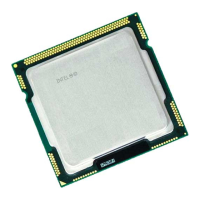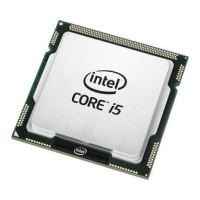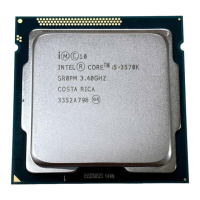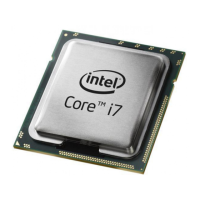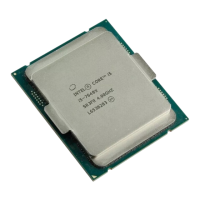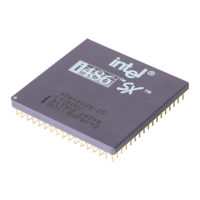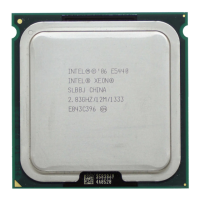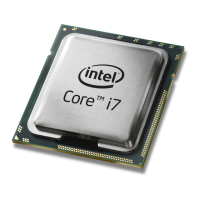HARDWARE REFERENCE A
3-24
• A 512 Kbyte space is being mapped, so the lower 19 bits of this register are needed to decode
an access. The remaining 13 upper bits are set to 1, so these bits are replaced with the contents
of the Local Base Address for PCI-to-Local Expansion ROM (94H). The lower 10 bits of this
register are not used.
Local Base Address for PCI-to-Local Expansion ROM (94H) - E0000017H
• Bits 11 to 31 of this register contain the local address of the expansion ROM. Bits 5 to 10 are
unused. Bit 4 is the Local Bus BREQo Enable, and is discussed in Section 3.12.3, Deadlock
Configuration (pg. 3-27). This bit must be enabled for proper operation of the PCI-SDK
Platform. Bits 0 to 3 encode the number of delay clocks to wait before asserting BREQo. This
value is also discussed in the section on deadlock. Setting these bits to 7 selects a 56-clock
delay.
Local Bus Region Descriptor for PCI-to-Local Accesses Register (98H) -
• All ROM regions on the PCI-SDK Platform should use the settings in Table 3-26 for this
register.
3.12.2 Local-to-PCI Configuration
To use the PCI-SDK Platform as a PCI bus master, the PCI 9060 requires that the portion of PCI space
to be accessed is mapped into the local processor's address space. The PCI 9060 can access memory or
I/O space on the PCI bus through region mapping, and it can also generate configuration cycles.
Address mapping is controlled by five registers in the Local Configuration group. If the PCI-SDK
Platform is used to access PCI space, the Range for Direct Master-to-PCI Register (9CH) (Table 3-28)
and PCI Base Address for Direct Master-to-PCI Register (A8H) (Table 3-29) registers must be
programmed for local-to-PCI accesses.
PCI memory space and I/O space are mapped to separate local processor regions. To access PCI
memory space, the Local Base Address for Direct Master-to-PCI Memory Register (A0H) (Table 3-30)
must be programmed with the local address to which PCI memory space should be mapped.
For PCI-SDK Platform access to PCI I/O or configuration spaces, the Local Base Address for Direct
Master-to-PCI IO/CFG Register (A4H) (Table 3-31) must also be programmed with a local base
address.
If both memory and I/O spaces are to be accessed, the local base address registers should be
programmed with different values to prevent address spaces from overlapping. Configuration cycles
produced by the PCI 9060 are controlled by the PCI Configuration Address Register (ACH) (Table 3-
32). If the Configuration Enable bit in this register is set, the PCI 9060 converts I/O space accesses to
configuration space accesses using the values programmed into this register.
